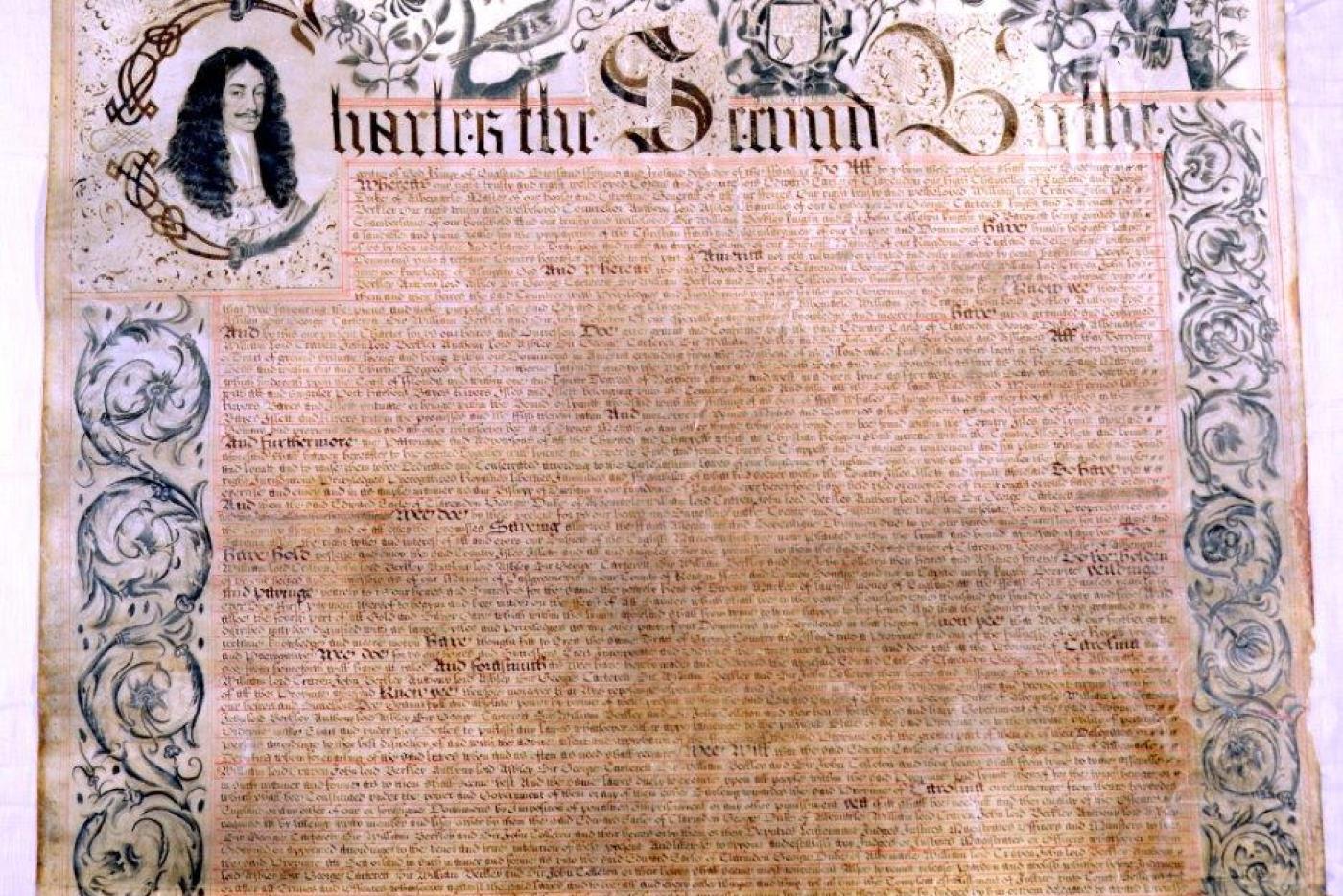Did you know that the land of the Carolinas once extended ocean to ocean, covering parts of what is now Florida, Mexico, Texas, and California? King Charles II granted this land in 1663 to several of his supporters-the "Lords Proprietors"-in return for their service to the Crown during the English Restoration. The gift of land was designated in the Carolina Charter of 1663.
Considered the "birth certificate" of the Carolinas, the Carolina Charter will be on exhibit from Monday, Feb. 8, through Thursday, Feb. 14, at the North Carolina Museum of History in downtown Raleigh. Written on vellum (calf- or sheepskin), this remarkable document bears a striking pen-and-ink portrait of King Charles II of England on the first page.
The Carolina Charter marks the beginning of organized, representative government in the province of Carolina, granting to the colonists rights that were to have lasting influence on the region's population and its history. For example, the Charter guaranteed the rights of property ownership, the establishment of courts, and representation of delegates of "Freemen of said Province."
"The Charter is a unique and beautiful document," noted Sarah Koonts, state archivist. "Because of its fragility, we can rarely display it, but for a brief time the public will have the opportunity to view one of North Carolina's most important founding documents."
The Carolina Charter will be on view in the "Treasures of Carolina: Stories from the State Archives" at the N.C. Museum of History. Visit and see rare documents from the State Archives' vault and learn about the characters and stories behind them through the exhibit. "Treasures of Carolina"will run through June 19 and admission is free. For information about the N.C. Museum of History, a Smithsonian-affiliated museum, call 919-807-7900 or access ncmuseumofhistory.org or follow on Facebook, Twitter, Instagram, Google+ or YouTube.
About the State Archives of North Carolina
The State Archives of North Carolina State Archives collects, preserves, and makes available for public use historical and evidential materials relating to North Carolina. Its holdings consist of official records of state, county and local governmental units, copies of federal and foreign government materials, and private collections.

